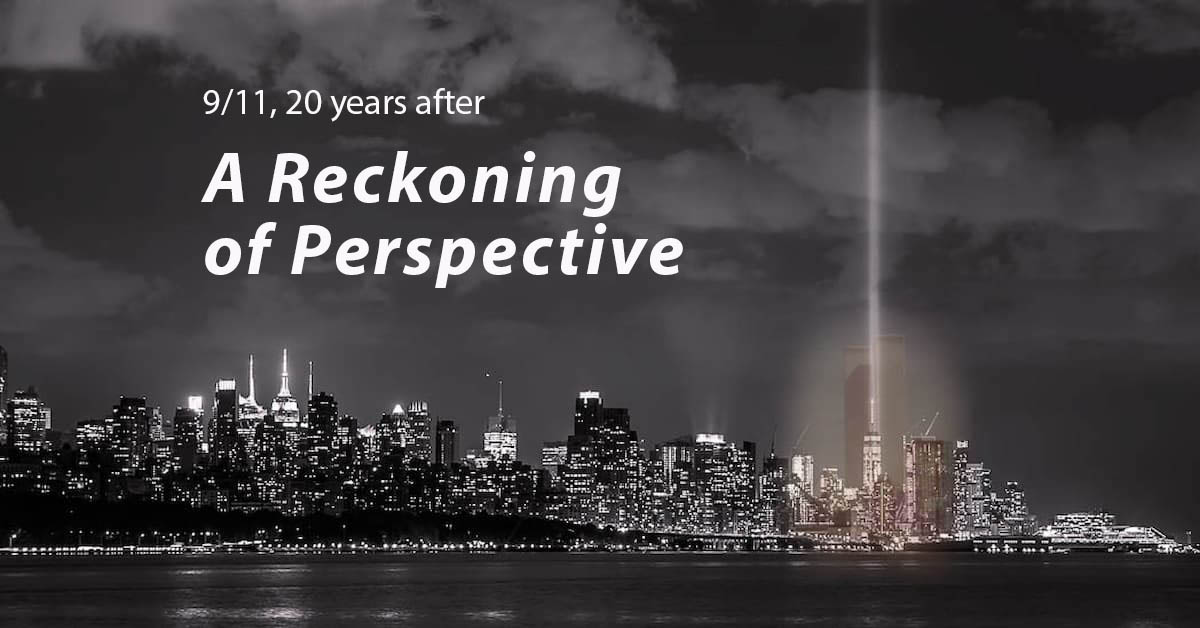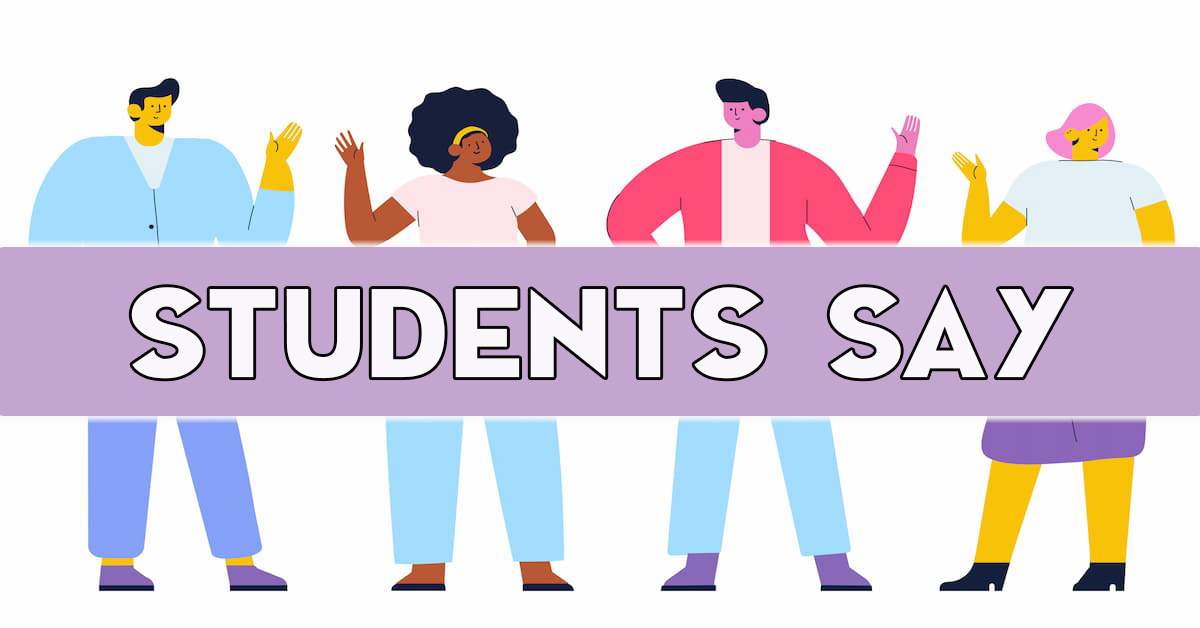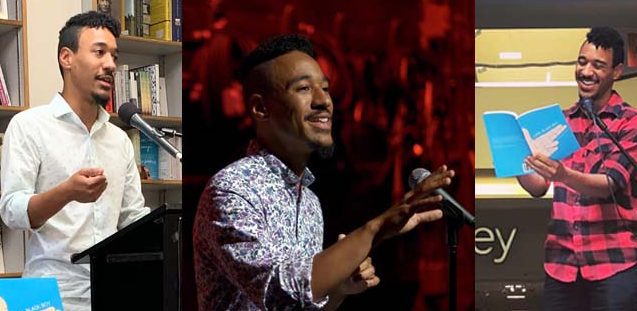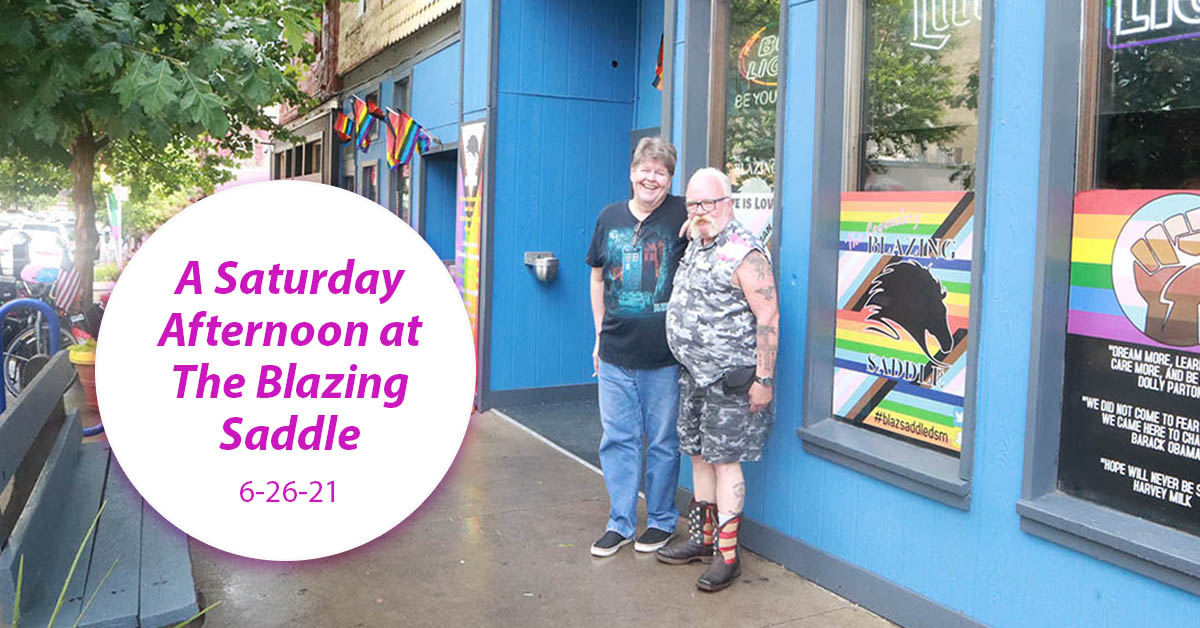We were hanging out at an Iowa City bar in early September a few years ago, a few drinks already down, when our late-arriving friend brought a bad attitude in the door.
I hardly knew him, though he knew my drinking companions well. He’d had a frustrating dinner earlier; his waitress was too slow.
My 30-something drinking companions and I had started talking about the upcoming anniversary of 9/11; our new arrival was NOT down for it. He had more important things to talk about, like his bad waitress. After dismissing the sadness we’d expressed, and offering a few eye rolls, he scoffed — literally scoffed — and said with a smirk on his face, “Come on, like you actually knew anyone that died on 9/11!”
Crackle, snap. That’s the sound of the icy chill that immediately coated our formerly cozy table at a popular Iowa City drinking spot.
That day was a callous reminder, harsh in its flippancy, that many of our friends and neighbors are completely out of touch with 9/11. A day that affected many of us like no other means little to many of our fellow Americans, who to this day barely understand the day itself, what happened in its aftermath, or how it became exploited by all sides.
We need to change that.
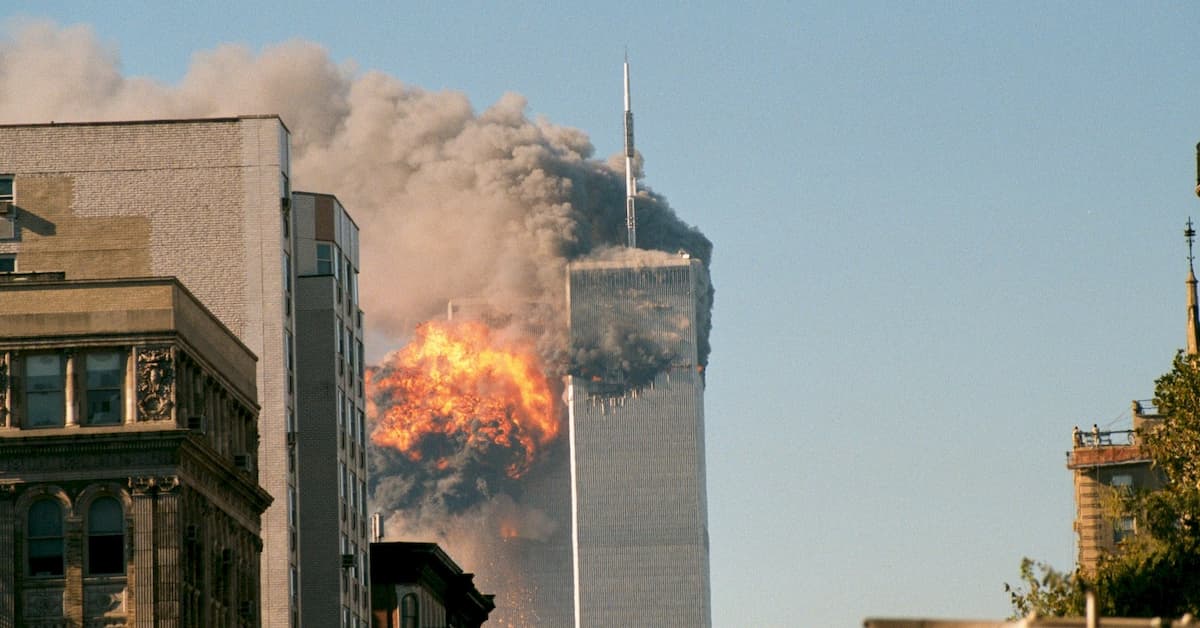
This generational divide over 9/11 is well-documented. “It seems very distant to me, despite being an event that happened in my lifetime,” a 22-year-old college graduate told Voice of America last year. “It feels like something that we learned in history books, something like World War Two.”
Some experts see 9/11 as THE defining topic that separates millennials from Gen Z. “Either you remember it and all the emotion that goes with it, or you don’t. And if you don’t then you’re in Gen Z,” says Jason Dorsey, president of the Center for Generational Kinetics, to Business Insider.
Even many politically aware adults remember, but either don’t really understand or outright resent, 9/11 itself and memorials of it.
For many of these adults, the phrase symbolizes one of two things: a really bad day in America’s history that we should be “over” by now — or a brutally effective reminder of what happens when domineering, arrogant America violates a foreign culture for selfish interests.
On the surface, callousness about 9/11 is a sensitive button for me. Though I didn’t know anyone personally who died that day, and can’t claim to know the agony thousands of families experienced, I did live in 2001 within a half-hour of where several 9/11 hijackers lived and trained for a year to overtake four airplanes in one day. My brown-skinned girlfriend at the time found herself treated differently by people who began to look suspiciously at her features that resembled those of the hijackers. And President Bush was visiting an elementary school in my hometown that day, when he received the news.
But the offense I felt was much deeper. And I realized it was the same offense I felt toward people who fit the latter definition I mentioned above: bitter, angry, continuously defiant younger activists who see 9/11 as nothing more than an event exploited to justify an extremely unjust war, or two.
For many of them, 9/11 is just a super-dramatic moment sandwiched between America’s long past of colonialism, and its future ongoing colonialism. They see mourning 9/11 in the same category as speaking about feminism instead of nonbinary rights, or focusing on the NAACP rather than BLM. It’s outdated, old-school, not “woke,” and not with it. For these activists, mourning the death of 3,000 mostly white people, when white people have for so long exploited, killed and tortured so many, many more brown and Black people, is absurd.
The generational divide over 9/11 is now likely to get much, much worse, with the mangled pull-out from Afghanistan. The wedge this will become for far-leftists who would paint Biden as the equivalent of Trump, and whose only goal is to plant suspicion against government in general … I shudder to think at how this all will play out when Trump runs for President again in 2024.
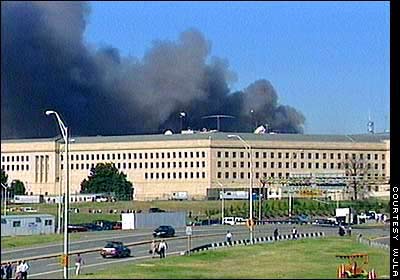
This is one reason why I’m writing this blog and breaking free from the self-silencing on 9/11 that blanketed me since that uncomfortable encounter at The Deadwood in 2019, and a few more encounters since then with progressive insensitivity toward 9/11.
The landmark 20th anniversary of 9/11 inspires me to speak out this year: Urgently, I encourage young adults and especially those with activist influence over other impressionable young minds to take a new beat. Consider seeing 9/11 in some of the hues that color it for me and many others. Because these colors are in stark contrast to the graffiti-filled, protest-powered, grievance-driven activism of the past 18 months:
- 9/11 is a brutal reminder that activism itself is complex and needs to remain that way. 9/11/2001 blew away, literally, comfort with simplistic phrases, broad-brush condemnations or glorifications, or a “one size fits all” approach to activism. We faced a historically toll-taking stealth attack from a country we’d either ignored or taken advantage of for decades. And this attack was undertaken by brown-skinned people whose beliefs clashed with not only our beliefs, but with many of their fellow brown-skinned people, and many members of their own country and religion. We couldn’t be fueled by righteous indignation against people we’d exploited relentlessly, who struggled to survive every day while we as a country became a more selfish consumer. We were forced to realize that just as we were willing to give our lives for our beliefs, so were these attackers. The web of intersectional circumstance around 9/11 make today’s simplistic protest signs, catchy chants, emotion-fueled surges, and “made for social media” moments feel inappropriate, at minimum.
- 9/11 forced a grounding. On 9/11/2001, and for several years afterwards, humanity’s most basic rights were revealed to need urgent defense from truly horrific assault. The rights of women (one-half of the world’s population) to merely exist without fear of rape, torture, or killing was under attack. The rights of humans to share factual information without fear of their heads being chopped off or being burned alive in a cage ….. Also under attack. During the months and years after 9/11, context mattered ever so much. The idea of progressives attacking and marginalizing each other because they weren’t angry enough? Of People of Color accusing other People of Color of not being pro-Black or pro-brown enough? Of using our activist power to demand “apologies” and ousters for every single verbal mis-step of a public official or prominent person? I am not sure how effective or helpful these would have been in the months and years right after 9/11.
- 9/11 destroyed our illusions. Most Americans I spend time with acknowledge that the underlying motive of the 9/11 attackers holds at least a speck of truth. Their objection to America’s worldwide arrogance and capitalist entitlement resonates, to some degree, with everyone but the most cold and calculating. Deep down, we know we ARE collectively and relatively selfish, and excessively wasteful. We HAVE functioned, domestically and in the world, like the bullying big kid in the group: taking what we wanted, when we wanted, and crying when we got caught. It’s true. Suddenly, 9/11 revealed that entitlement as an illusion we had built for ourselves, that we could no longer hold. From that day on, every single thing we did required more forethought, awareness of actual consequences, acknowledgment of different interpretations, demonstration of restraint. It was the way things needed to be, and perhaps should have been all along.
- The very hardest part of 9/11 for me was the grand sense of our grief and activism exploited. Within weeks and months of 9/11, almost before we could grasp the collective horror, we were “spun.” The initial unity that drew together Lorne Michaels and Bette Midler with George W. Bush and Rudy Giuliani turned toxic quickly, as we marched toward war. Our country had excelled at comforting each other; suddenly, we became the leader of divisiveness. And it hit me hard: as Bush and company took us into war against Afghanistan, then Iraq, I grew bitter and angry toward the American political system and within a year of 9/11, I was on the verge of full-out nihilism, the same kind of nihilism I see among many of today’s angriest activists. Like them now, I was drowning in disillusionment with my government and my country. I went fully underground with no media or political engagement of any kind, no TV, no news, no voting, no cable, certainly no social media, not even a computer. Nothing but my partner, yoga, meditation, music, gardening, cats and my slowly-easing anger at a world that had wrenched my emotions and distorted my drive to make a difference from one extreme to another.
Only through the work of Richard Greenwald, in “Uncovered: The War in Iraq,” and how he revealed the lies and groupthink that took us from 9/11 to those wars, did I rediscover the spark. Greenwald’s work reminded me that the constant pursuit of context, truth and understanding is worth it. Contrary to the myths manufactured by Bush and company, the world was not selling out and settling.
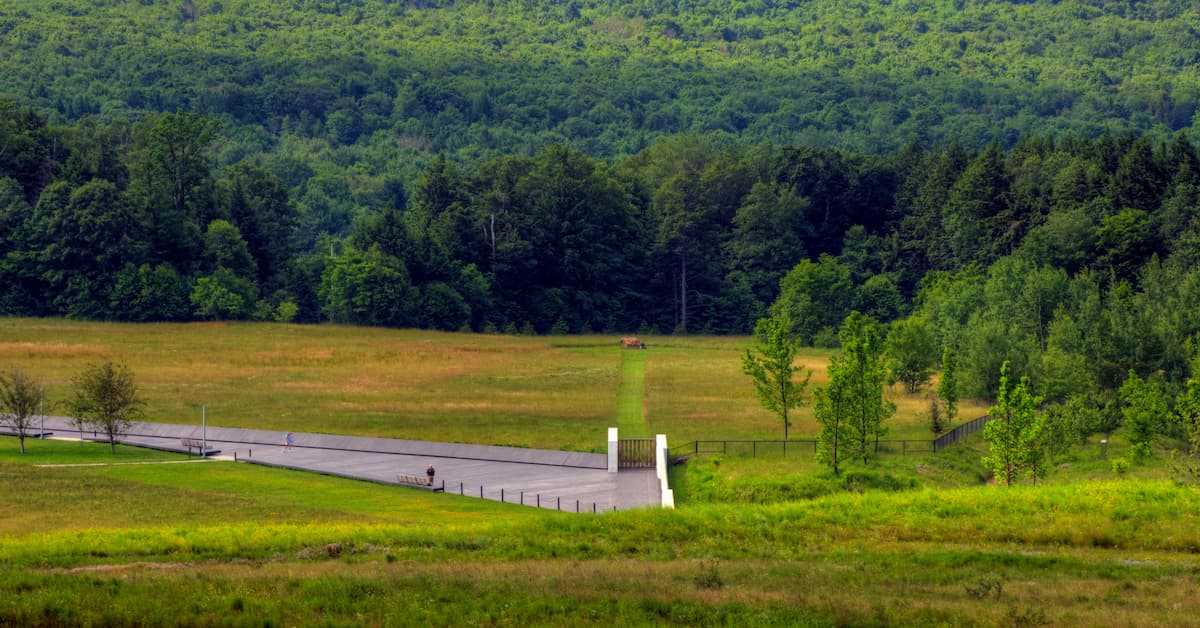
In hindsight, I’m so thankful for that eerie conversation at that Iowa City bar a few years ago. It launched me on a journey to better understand not only 9/11– but broader life questions, with answers that now need to be applied. Such as why my own progressive community’s activism over the past year sometimes troubles me. Why some of the social justice tactics are not something I can actively support, and more importantly, why so many Americans also feel unable to support some tactics undertaken on behalf of worthy movements.
It’s the lack of perspective. the lack of context, and how every just cause is now portrayed to warrant any extreme tactic or statement. Every grievance is seen as an essential grievance. Gestures that were once considered strong statements (i.e. graffiti, vandalism, massive chanting crowds, shutting down public thoroughfares, walking out of class) are now commonplace activist tactics, enacted over every issue. And though these tactics have worn so thin, they are still continuously given the top spot on the local and regional daily news cycle — like those reality shows you love to hate, but that still appear atop every Nielsen rating.
This feeds a relentlessly self-ravaging, cannabalistic cycle: some activists literally believe they will and should be “protesting forever,” and they’re shaping other young minds to carry out that same mentality, furthering the struggles of burnout and over-stretching that began plaguing so many activists so much more after George Floyd’s death in May 2020.
We went on to learn after 9/11/2001 that the attack itself was only the start of then-unimaginable levels of extremism. We were launched into an era of constant fear. And then, like a really bad carnival ride, we were lurched into extremism in the other direction, pummeled by a patriotic fervor that fed off of that same fear. We learned in such a hard way how quickly things could turn very, very bad, and the toll it takes when our movements are fueled mostly by angry, righteous beliefs.
Now, with the return of the brutal Taliban, and the even more-brutal Isis-K, we are forced — as we were on 9/11 — to put our own grievances into broader context. The growing tales of folk singers, female news anchors, reporters and linguists in Afghanistan yanked from homes and cars and tortured or killed…. These are reminders of the 9/11 era’s lessons of complexity and context we were forced to learn. The biggest among them: relentless escalation takes a toll that cannot be replenished, and triggers changes that cannot be reversed.
I hope the 20th anniversary of 9/11 leads to a wholesale reconsideration of our activist motives, strategies, specific tactics, and their impact on all intersectional identities.
I hope our activist leaders begin asking, again or at least more often: Is there a way to handle this without riling up a mass? Are there solutions that do not involve inciting the strongest possible emotions, and actions that push us to the brink of or beyond acceptable tactics — all “in the name of”? Can we hold the tough conversations, and make ourselves accountable to the public, without also dragging them into disruption and chaos every time?
“I watched what was happening live on TV. A friend of mine had an interview in Tower 1 that day. He showed up; they said they had to reschedule, and he got on the train to go back home. He called me sobbing. My neice’s aunt lived in Manhattan. She described seeing neighbors’ mail and papers pile up …. I couldn’t sleep. I ditched class. My good friend from India went to class with me the next week, and someone spit on her in the business college hallway and told her to get out of America. It was an awful, awful time. I HEARD the pop noises on live TV of bodies hitting because people chose their death, their way. I will never forget. Every fire drill we have, where we are cattle slowly making our way down stairwells from upper floors, gives me a flash memory of those images. Remember the personal parachutes that went on the market like a WEEK after? So much exploitation of fear. The best and worst of humanity came out in front of our eyes.”
An anonymous Iowan’s recollection of 9/11, from a distance
Consider that it may be time to put away the catchy protest signs, stop chanting the simple chants, redirect energy from bullhorns to small-group conversations, and give up some of the spray paint and rocks through windows that Donald Trump helped popularize. Or at least, reserve them for the very most urgent situations.
We’ve already been down the path of pushing it to the limit, as we’re newly reminded with the 20th anniversary of 9/11. We can’t keep going down this path of relentless escalation and “shock and awe,” liberal-style. We have to stop the macro-ization of every micro-aggression.
The powder keg I’ve written about before is still there, closer than ever to the flames and more packed with a bigger kaboom. It’s why context has to start mattering to activists — as much as the social media clicks, and the cameras, and the quotes, and the petitions, and the headlines, and the spots on the evening news. It might be a good time to put more resources toward more nuanced, more challenging efforts that need to be going on all the time — before, after and in-between protests, news cycles, and social media blasts, even when no one’s looking.
In closing: so many young adults I speak with, many of whom have the strongest political views about 9/11, have never actually seen footage of the day itself. They may have seen movies, or television recreations, or heard someone talk about it. They don’t have the same awareness of that day as those of us who lived it.
If you are among those adults who has enabled yourself to retain a distance from 9/11 itself — and especially if you have retained that distance while putting yourself in a position of influence over other activists, community organizers, volunteers or other community-oriented people — here are several documentaries about 9-11 that help you understand the day as it actually was, plus the exploitation that occurred afterward and led us into the 20-year war that just, finally, ended.
Content alert: all true footage of 9/11 features scenes of extreme trauma and should be viewed accordingly.
One Day in America: 9/11 (on Hulu)
Uncovered: The War on Iraq: Mentioned in the column above, this documentary of 2004 illuminates the truth behind the build-up to war against Iraq, in the aftermath of 9/11.
(cover photo is by Tom Marvel, layered with Storm Crypt, both from Flickr)
Author Christine Hawes is founder and editor of The Real Mainstream and a longtime journalist, activist and communications consultant. You can reach her at 319-777-9839 or chris@therealmainstream.com.

